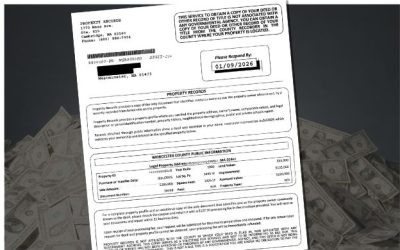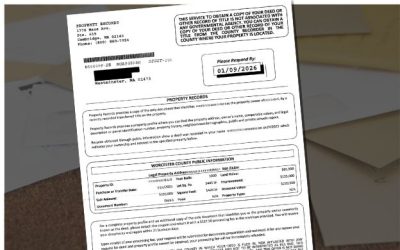
Oct 14, 2025 | Home Building Tips, Home Buyer Tips, Home Buying Tips, Home Closings, Home Mortgage Tips, Home Seller Tips, Home Selling Tips
When that happens, knowing your legal rights and obligations becomes critical. A skilled Massachusetts real estate attorney can help you protect your interests, recover deposits, and decide whether to renegotiate or walk away. Here’s what to do if your deal doesn’t close as planned.
1. Review the Purchase and Sale Agreement
The first step after a failed transaction is to review the Purchase and Sale (P&S) Agreement, which outlines the rights, contingencies, and timelines for both buyer and seller.
Most Massachusetts P&S agreements include detailed inspection, appraisal, and financing contingencies that determine whether a deposit is refundable. The Massachusetts Association of Realtors explains that these contingencies act as legal “escape hatches” if specific conditions aren’t met before closing (MAR, 2025).
Your attorney can interpret the contract’s fine print and identify whether you’re entitled to a refund or release. Acting quickly helps prevent misunderstandings that could escalate into legal disputes or escrow delays.
2. Handling Deposit (Escrow) Disputes
In most Massachusetts home sales, the buyer deposits earnest money — typically held in an attorney’s escrow account — to show good faith. If the deal collapses, both parties must sign a mutual release authorizing return or forfeiture of those funds.
Without a signed release, the deposit often remains frozen until both sides reach agreement or a court intervenes. The Massachusetts Division of Banks outlines how escrow funds are protected under state trust-account regulations (Mass.gov, 2024).
An experienced real estate attorney acts as a neutral fiduciary, ensuring deposits are managed according to Massachusetts law. If one party refuses to sign a release, your attorney can issue a demand letter or pursue mediation before litigation becomes necessary.
3. Inspection Failures and the New Law
Massachusetts’ new home inspection law, effective October 2025, introduced clearer buyer rights and stricter scheduling standards. Under the updated rules, buyers must complete inspections within a defined timeline — and sellers must allow reasonable access or risk violating the agreement.
As detailed in our earlier post, “What Buyers & Sellers in MA Should Expect Under the New Home Inspection Law”, these reforms help reduce last-minute cancellations and ambiguous repair disputes.
If an inspection uncovers defects, your attorney can guide you through renegotiation — for example, by drafting an amendment for seller repairs or a price adjustment — or help you properly withdraw without losing your deposit.
4. Benefiting From the New Home Inspection Law
Even after inspections pass, deals can fail when the appraised value comes in below the agreed purchase price. Lenders rarely approve financing that exceeds appraisal value, leaving buyers to cover the gap or renegotiate.
According to Bankrate, appraisal shortfalls are one of the top reasons sales collapse nationwide.
Your attorney can prepare an addendum for price renegotiation or an extension allowing time to resolve lender concerns. If financing ultimately falls through, counsel ensures proper documentation is filed so the transaction terminates cleanly.
5. Next Steps: Renegotiate, Release, or Pursue Legal Action
After reviewing all contingencies, your attorney may recommend one of three paths:
- Renegotiate: Adjust price, closing date, or repair terms to salvage the deal.
- Mutual Release: End the contract amicably, with a clear escrow disposition.
- Legal Remedy: If one party breached the contract, a demand letter or small-claims action may be appropriate.
The Massachusetts Trial Court Law Libraries provide guidance on breach-of-contract claims involving real estate transactions (Mass.gov, 2024).
The key is acting quickly and documenting every communication. Your attorney ensures all notices and releases are executed properly to protect you from liability.
Turn a Setback Into a Strategy
A failed home sale can feel like a setback, but it doesn’t have to become a legal nightmare. With the right representation, you can recover deposits, avoid costly disputes, and position yourself for the next opportunity.
The Law Office of David R. Rocheford, Jr., P.C. helps buyers and sellers across Massachusetts and New Hampshire navigate escrow disputes, renegotiations, and closing delays with confidence and clarity.
Providing title, escrow, closing and settlement services to clients throughout Massachusetts and New Hampshire

Aug 21, 2025 | Buying Real Estate, Consumer Tips, Credit Scoring, Home Building Tips, Home Buyer Tips, Home Buying Tips, Home Closings, Home Mortgage, Home Mortgage Tips, Home Seller Tips, Home Selling Tips, Home Tips, Home Values, Homebuyer Tips, Homeowner Tips
Once upon a time, the path to homeownership started in your late 20s. Today, the median age of a first-time buyer has climbed to 38 — the highest in U.S. history. In Massachusetts and New Hampshire, where prices remain high and incomes haven’t kept pace, first-time buyers make up only 24% of the market. This generational shift isn’t just a national trend — it’s reshaping local markets, too. Let’s explore why fewer young buyers are entering the game and what it means for buyers, sellers, and lenders alike.
The Shrinking First-Time Buyer Pool
In 2010, first-time buyers represented half the housing market. By 2024, that number dropped to less than a quarter. It’s not because younger generations don’t want to buy — surveys show they do — but the financial barriers are higher than ever.
For Massachusetts and New Hampshire buyers, the challenge is particularly acute. Both states rank among the nation’s most expensive housing markets, with limited inventory and bidding wars still common in desirable areas. That leaves many would-be buyers sidelined, even when mortgage rates dip slightly.
Why It’s Harder Than Ever
The income needed to buy a median-priced home has soared to over $126,000 a year, nearly 60% higher than in 2021. Meanwhile, household incomes in the region have barely budged. That mismatch has locked many younger buyers out of the market.
Millennials and Gen Z carry heavy financial baggage, from student loans to credit card balances. With Gen Z’s average personal debt topping $94,000, saving for a down payment feels more like a marathon than a sprint.
Entry-level homes — once the natural first step into ownership — are scarce. Many builders in New England focus on higher-margin luxury units, while affordable starter homes are either aging or quickly snapped up.
Younger generations are delaying marriage, children, and long-term settling, which historically drove first-home purchases. Add in higher rent burdens and inflation, and the dream of ownership is being pushed later into life.
What This Means for Sellers
If you’re selling in Massachusetts or New Hampshire, this trend could mean fewer young families competing for your property. That may soften demand in some price brackets, especially for entry-level homes. On the flip side, it also means that when younger buyers do show up, they’re highly motivated — and often well-prepared with family support, FHA financing, or cash gifts.
What This Means for Lenders
Lenders can’t assume yesterday’s products will work for today’s market. Winning over first-time buyers requires:
- FHA and low down payment options to lower the entry barrier
- Alternative credit scoring (including rental and utility history) to qualify more applicants
- Digital-first lending to meet younger buyers where they are
- Educational resources to guide cautious, debt-burdened buyers through the process
The lenders who succeed won’t just hand out mortgages — they’ll provide tools, trust, and guidance.
What This Means for Buyers
If you’re a first-time buyer in MA or NH, you’re not alone in feeling like the deck is stacked against you. But there are pathways forward:
- Explore FHA or MassHousing programs that reduce down payment hurdles
- Work with a closing attorney early to understand costs and risks
- Consider expanding your search beyond major metros into more affordable towns or suburbs
The shrinking pool of first-time buyers isn’t just a statistic — it’s a reality that shapes how homes are bought, sold, and financed in Massachusetts and New Hampshire. For buyers, it means persistence and planning. For sellers, it means understanding who your likely buyers really are. And for lenders, it means rethinking old playbooks to stay relevant.
At The Law Office of David R. Rocheford, Jr., P.C., we help buyers, sellers, and lenders adapt to today’s challenges and keep closings on track.
Ready to navigate the new landscape? Contact us today
Providing title, escrow, closing and settlement services to clients throughout Massachusetts and New Hampshire
“I would highly recommend David as a closing attorney. I have known David and have been using his office for many years. David’s professionalism when dealing with me, my closing department and most especially my clients has been always exemplary.”
SENIOR LOAN OFFICER, SHAMROCK FINANCIAL SERVICES
“The Law Office of Attorney David R. Rocheford, Jr. is by far the most exceptional real estate law office that I have had the pleasure of working with. The professionalism is by far second to none.”
SENIOR LOAN OFFICER, SALEM FIVE MORTGAGE SERVICES
“Attorney David Rocheford has provided settlement and title services for me and Greenpark Mortgage several years. He has assisted all of my clients, including my family and friends with mortgage closings. Always providing excellent service. Reliable and trustworthy!”

Jun 19, 2025 | Around The Home, Around The Hoome, Artificial intelligence, Buying Real Estate, Chapter 7 Bankruptcy, Consumer Tips, Credit Scoring, Fair Housing, Federal Reserve, FHFA, Financial Crisis, Financial Fraud, Financial Reports, Foreclosure, Happy Thanksgiving, Holidays, Home Building Tips, Home Buyer Tips, Home Buying Tips, Home Care, Home Care Tips, Home Closings, Home Decorating, Home Financing Tips, Home Maintenance, Home Mortgage, Home Mortgage Tips, Home Seller Tips, Home Selling Tips, Home Tips, Home Values, Homebuyer Tips, Homeowner Tips, Housing Analysis, Housing Market, Interesting Stuff, Investment Properties, Legislation, Market Outlook, Mortagage Tips, Mortgage, Mortgage Guidelines, Mortgage Lenders, Mortgage Rates, Mortgage Tips, mortgage-rates-whats-ahead-september-17-2012, News, Organization Tips, Personal Finance, Probate Law, Rankings, Real Estate, Real Estate Agent Information, Real Estate Definitions, Real Estate Tips, Real Estate Trends, Realtors, Selling Real Estate, Selling Your Home, Short Sales, Statistics, Success, Taxes, The Economy, Title Insurance
Whether you’re buying with cash, investing from abroad, transferring property to a family member, or just trying to close without a headache, you’ll want to know what can trigger federal scrutiny — and how to stay off the radar.
From flagged wire transfers and shell companies to gift-of-equity sales and land near military zones, this isn’t your average title-and-keys situation.
It’s real estate with a side of national security, tax enforcement, and financial crime prevention.
Is Big Brother Watching Your Home Sale?
What Buyers and Sellers Should Know About Federal Oversight
You’re Not Paranoid — They Might Actually Be Watching
What you didn’t know on how federal agencies keep tabs on select real estate transactions.
Your Closing Packet Could Be a Federal File
How Your Paper Trail Might Raise Red Flags — And What You Can Do About It
What the FBI, IRS, and Homeland Security
Could See in Your Closing Docs
We’re unpacking what agencies might spot inside your deal’s fine print.
Caught in the Crosshairs? What Triggers Federal Interest in Your Home Sale
The Top Red Flags That Could Invite a Closer Look from Washington
Cash, LLCs, or Land Near a Base? You Might Just Be a Target
The warning signs that put your deal on the government’s radar — and how to stay clear.
Follow the Money: How the IRS Tracks Financial Crimes Through Real Estate
From Unreported Income to Shell Game Schemes
— What IRS-CI Is Looking For
Your Closing Could Be an Audit Trigger — Here’s How the IRS Sees It
Explore the patterns, documents, and loopholes that turn ordinary deals into criminal cases.
Providing title, escrow, closing and settlement services to clients throughout Massachusetts and New Hampshire
“As a realtor, the Rocheford team went above and beyond to make sure my client was not only protected from a legal standpoint but also operated in a timely manner to execute the sale of my client’s dream home.
Thank you for the great experience for myself and my client! Looking forward to our next deal together!”
Realtor®
“I don’t usually use attorneys that often. But if an attorney is needed, I couldn’t recommend this law office enough. I always pride myself on responding quickly to emails and calls, but I was in awe of how fast paralegal Robert Heckman would respond to us. We sold our house a couple months ago and then did a two-part land swap with neighbors and my folks, and both transactions were seamless, including coming in to sign paperwork.
In short, if you need a law office that is responsive and attentive to detail, definitely consider them!”
Leominster, MA
“Excellent, conscientious and professional.
The communication throughout our Real Estate transaction was better than expected. We thought the fee to be very reasonable considering the work accomplished on our behalf. The law office handled the entire closing without us having to be in attendance….as we requested. I have had experience with very competent lawyers and law firms as the result of my previous profession. I would place this law office right up there among the best in their real estate field of expertise and surprisingly at very reasonable and affordable rates/fees.”
Buzzards Bay, MA

Apr 16, 2025 | Consumer Tips, Fair Housing, Home Building Tips, Home Buyer Tips, Home Buying Tips, Home Maintenance, Home Seller Tips, Home Tips, Selling Real Estate, Selling Your Home
Won’t You Be My Neighbor? ADUs Now Permitted by Right in Massachusetts
Accessory Dwelling Units (ADUs) — small, independent living spaces on the same property as a main home — just got a big green light in Massachusetts. Thanks to the Healey-Driscoll Administration’s “Affordable Homes Act,” homeowners can now build or convert ADUs by right in many communities, making it easier to add housing and income flexibility.
If you’re a Realtor®, lender, or homeowner, here’s what you need to know to make sense of the new rules — and how they impact your property or transactions.
An ADU is a secondary living unit with its own sleeping, eating, cooking, and bathroom facilities. Think: a converted garage, a backyard cottage, or a finished basement with a separate entrance.
New Rules (Effective 2024):
The updated state law allows ADUs:
- As detached structures
- As additions to existing homes
- As conversions of garages, attics, or basements
To qualify, the ADU must be:
- Less than half the size of the primary residence or under 900 square feet
- Located in a single-family zoning district
- Code-compliant with a separate entrance
Key Protections for Homeowners
The new law, under MGL Chapter 40A, Section 3, overrides local zoning if the ADU meets minimum state standards:
- Cities cannot ban single ADUs
- Owner occupancy is not required
- ADUs can be rented for long-term housing
- Only one extra parking spot can be required
Local Nuances Still Apply:
Municipalities can:
- Ban short-term rentals (Airbnb, etc.)
- Restrict ADUs in flood zones or historic districts
- Require compliance with Title V septic and environmental regulations
Each of Massachusetts’ 351 towns has its own zoning quirks. While ADUs are protected, local rules may shape your options. Thinking of building one? Start by calling your local planning board.
At The Law Office of David R. Rocheford, Jr., P.C., we help clients navigate land use, permitting, and local regulations with confidence. Whether you’re buying, building, or advising, we’re here to help.
1234 Divi St. #1000, San Francisco, CA 94220
Copyright © 2026 Divi. All Rights Reserved.

Apr 15, 2025 | Home Building Tips, Home Buyer Tips, Home Buying Tips, Home Mortgage, Home Mortgage Tips, Homebuyer Tips, Homeowner Tips
Sometimes it’s not the financing or the walkthrough that breaks a real estate deal — it’s a quiet little surprise hiding in the title report. At The Law Office of David R. Rocheford, Jr., P.C., we’ve seen more than our share of these red flags crop up at the worst moment. The good news? Most of them are preventable when you know what to look for.
Here are five title issues that can stall or kill a closing — and how Realtors®, loan processors, and mortgage teams can flag them early.
This is more common than you’d think. A loan may have been paid off years ago, but the discharge (release of lien) was never recorded with the Registry of Deeds.
Solution: Ask the title attorney to verify discharges during the title search. If one is missing, the payoff lender must provide documentation. MA’s Land Court resources can help untangle trickier cases.
Estate Sales with Unclear Authority
When a property is sold from an estate, the seller must have legal authority to transfer title — usually as executor or personal representative. But if probate is still open or not finalized in MA or NH, the sale could be delayed.
Solution: Confirm probate status early. Request Letters Testamentary (or equivalent) and verify proper legal authority before listing or lending.
From unpaid contractor bills to child support liens, old claims can resurface. Some are valid, some are mistakes — all are problems.
Solution: Make sure a title search goes back far enough. NH and MA each have lien recording rules; liens must be cleared or bonded off to close.
Boundary or Easement Disputes
A shared driveway or unclear fence line may seem minor — until one party refuses to sign off. Title insurance may exclude coverage unless it’s resolved.
Solution: Review surveys and legal descriptions. If easements or encroachments appear, bring in a real estate attorney early to negotiate terms or resolution.
Fraudulent Transfers or Forged Deeds
Rare, but real. Massachusetts and New Hampshire have both seen forged deeds or transfers from people impersonating owners, especially in vacant or investment properties.
Solution: Require in-person or verified remote notarization. Use MyOwnDeed or local registry alert systems to monitor activity tied to property titles.
Proactive Title Work. Peace of Mind at the Closing Table.
Spotting these red flags early keeps everyone out of panic mode — and ensures your deal closes clean. Our team knows how to dig deep into a title report and help you keep the path to closing crystal clear.
Providing title, escrow, closing and settlement services to clients throughout Massachusetts and New Hampshire
“As a realtor, the Rocheford team went above and beyond to make sure my client was not only protected from a legal standpoint but also operated in a timely manner to execute the sale of my client’s dream home.
Thank you for the great experience for myself and my client! Looking forward to our next deal together!”
Realtor®
“I don’t usually use attorneys that often. But if an attorney is needed, I couldn’t recommend this law office enough. I always pride myself on responding quickly to emails and calls, but I was in awe of how fast paralegal Robert Heckman would respond to us. We sold our house a couple months ago and then did a two-part land swap with neighbors and my folks, and both transactions were seamless, including coming in to sign paperwork.
In short, if you need a law office that is responsive and attentive to detail, definitely consider them!”
Leominster, MA
“Excellent, conscientious and professional.
The communication throughout our Real Estate transaction was better than expected. We thought the fee to be very reasonable considering the work accomplished on our behalf. The law office handled the entire closing without us having to be in attendance….as we requested. I have had experience with very competent lawyers and law firms as the result of my previous profession. I would place this law office right up there among the best in their real estate field of expertise and surprisingly at very reasonable and affordable rates/fees.”
Buzzards Bay, MA
Aug 30, 2017 | Home Building Tips
 According to the Case-Shiller National Home Price Index for June, Seattle, Washington continued to lead home price growth for the tenth consecutive month with a June reading of 13.40 percent growth year-over-year. Portland Oregon held second place for home price growth in the 20-City Home Price Index in June but trailed Seattle by 5.20 percent with 8.20 percent year-over-year home price growth. Dallas Texas held third place with a year-over-year home price growth rate of 7.70 percent. The 20-City Home Price Index increased by 5.70 percent year-over-year and was unchanged from May’s reading.
According to the Case-Shiller National Home Price Index for June, Seattle, Washington continued to lead home price growth for the tenth consecutive month with a June reading of 13.40 percent growth year-over-year. Portland Oregon held second place for home price growth in the 20-City Home Price Index in June but trailed Seattle by 5.20 percent with 8.20 percent year-over-year home price growth. Dallas Texas held third place with a year-over-year home price growth rate of 7.70 percent. The 20-City Home Price Index increased by 5.70 percent year-over-year and was unchanged from May’s reading.
Case-Shiller’s National Home Price Index reported a reading of 5.80 percent home price growth in June as compared to May’s reading of 5.70 percent.
Wage Growth, Strong Economic Indicators Drive Demand for Homes
Case-Shiller’s month-to-month home price data also reflected continued growth. 14 cities reported higher home prices in June after seasonal adjustment. Home prices rose 0.40 percent month-to-month nationally; the 20-city index rose by 0.10 percent month-over-month after seasonal adjustment.
Shortages of homes for sale continue to drive up home prices as sales of pre-owned homes outpace new home sales. Builders haven’t kept up with demand due to ongoing labor and lot shortages and rising materials costs. There was an estimated 4.20 months’ supply of homes for sale in June; the average level is a six-month supply. Low mortgage rates continue to encourage first-time and current buyers to enter the market.
David M. Blitzer, Managing Director, and CEO of S&P Dow Jones Indices Committee said that although home prices are rising steadily, wage growth and overall economic growth were driving demand for homes in June. Mr. Blitzer said that current economic trends indicated home price growth was not expected to reverse anytime soon.





















 According to the Case-Shiller National Home Price Index for June, Seattle, Washington continued to lead home price growth for the tenth consecutive month with a June reading of 13.40 percent growth year-over-year. Portland Oregon held second place for home price growth in the 20-City Home Price Index in June but trailed Seattle by 5.20 percent with 8.20 percent year-over-year home price growth. Dallas Texas held third place with a year-over-year home price growth rate of 7.70 percent. The 20-City Home Price Index increased by 5.70 percent year-over-year and was unchanged from May’s reading.
According to the Case-Shiller National Home Price Index for June, Seattle, Washington continued to lead home price growth for the tenth consecutive month with a June reading of 13.40 percent growth year-over-year. Portland Oregon held second place for home price growth in the 20-City Home Price Index in June but trailed Seattle by 5.20 percent with 8.20 percent year-over-year home price growth. Dallas Texas held third place with a year-over-year home price growth rate of 7.70 percent. The 20-City Home Price Index increased by 5.70 percent year-over-year and was unchanged from May’s reading.